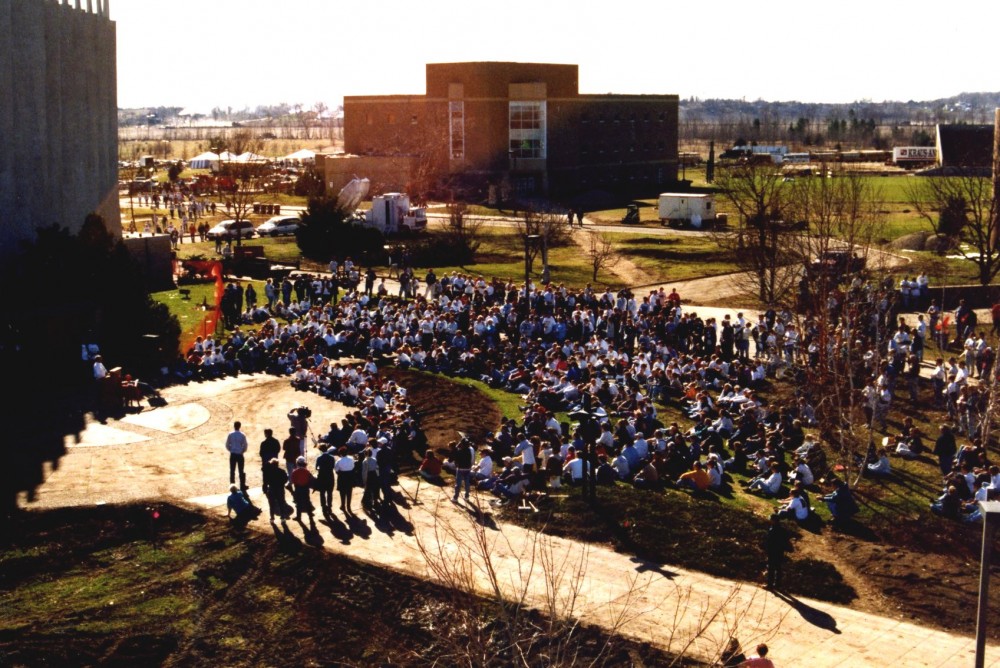
Reflections from Matt Thomas
Matt Thomas, a student on spring break during the time of the tornado, had no idea of the damage that had occurred until he returned.
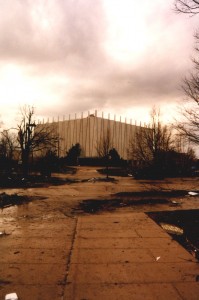
“I was on a family vacation at the time. My grandpa had called my dad and said that there was a tornado and that there had been some damage—that was all he said,” Thomas said. “I saw a short clip on CNN and all it showed was a picture of the chapel without a spire.”
Thomas knew it was sad, but he also knew that the spire could be replaced. It wasn’t until later that he fully realized the extent of the damage that occurred.
“My girlfriend called me, hysterical. She said that the campus was in ruins.” When Thomas arrived on campus a week after the tornado hit, he didn’t recognize the campus at all.
“All of the trees were gone. They were on the ground, every which way. Before you even got into town you knew something devastating had happened,” Thomas said. “Before, you couldn’t even see the college because of the trees.” After a while, everything became structured and the repairs to campus moved fast. Thomas, along with other students, did all they could to help clean up campus and work together in a time of turmoil.
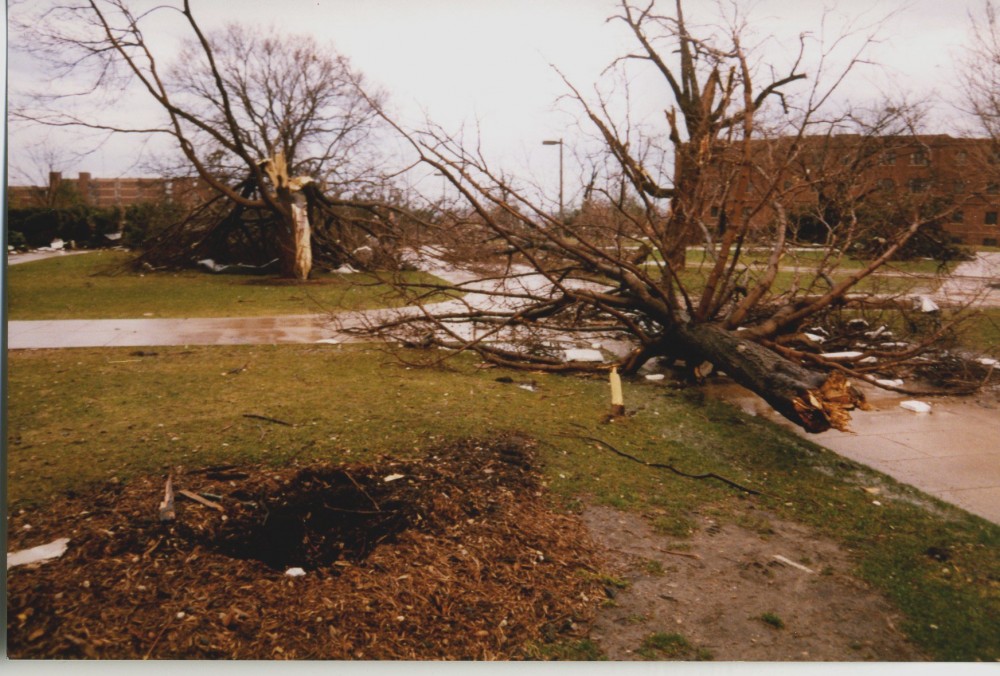
Reflections from Ken Westphal
Vice President for Finance and Treasurer Ken Westphal was not on campus the day of March 29, 1998 but his efforts as part of the team that oversaw the recovery were instrumental to the weeks to come.
“Besides overseeing the physical plant that was handling repairs, the dining service and the insurance programs, I was also responsible for filing the 50 plus million dollar claim with the insurance carrier.” Westphal said. The recovery began with installing FEMA trailers by Nobel Hall—which held everything from the Book Mark to the actual places where students lived during that time.
“There were already plans to add on to the campus center—‘Rebuilding a greater Gustavus’ was the tagline, and it was brought forward to show the community that we were coming back strong.” Westphal said. “I wouldn’t believe it had affected our entire campus. I expected the tornado to be a zigzag; I thought it would be fine. When I saw that the campus spire had toppled over, it was a wake up call.”
The bad luck continued—Monday it rained and Wednesday it snowed.
“All the roofs had to be replaced—and when it rained a few days later, it was like a shower inside the buildings. It was surreal.” Westphal said. After their streak of bad weather, the campus was finally able to come together and help cleanup. Students, alumni and people from all around came to help Gustavus in its efforts to rise against the havoc of this disaster.
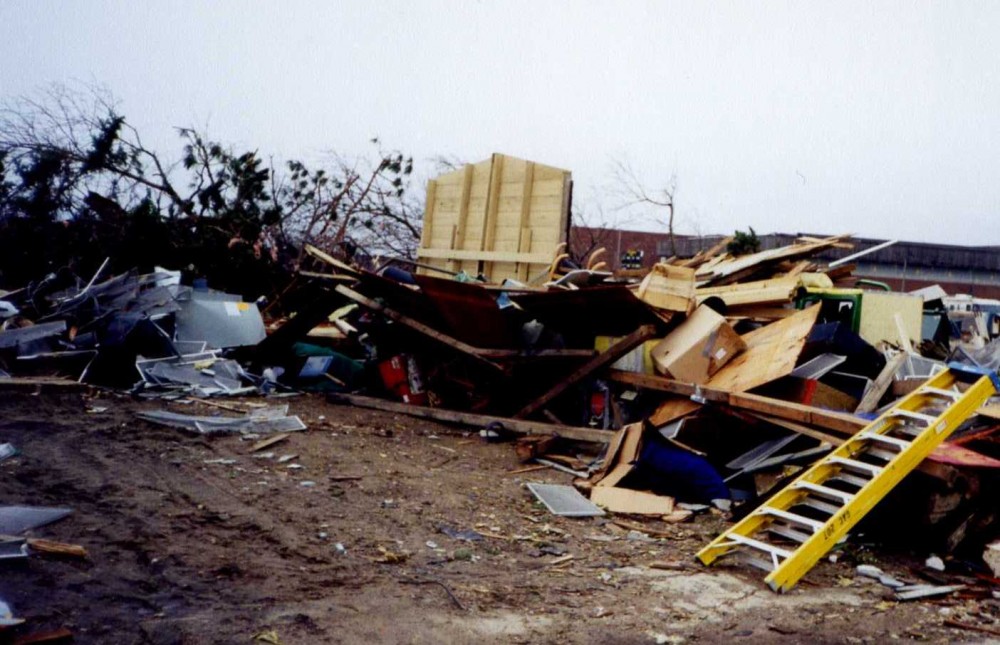
Reflections from Ray Thrower
Director of Campus Safety Ray Thrower had only been here 29 days when the tornado hit. It was a sunny day and students were playing tennis on the courts. Thrower called dispatch about a tornado warning that had gone off that day, but knew that tornado warnings were a common occurrence during the spring months.
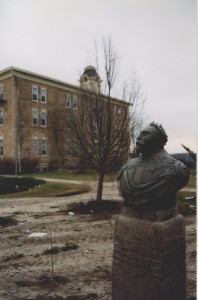
“20 seconds later, the sirens went off again, and I was alerted that a tornado was coming toward Gustavus,” Thrower said. “I looked to the sky, and it looked like the meanest storm. I told the other officer—we’re gonna get wet.”
Growing up on the East Coast where hurricanes were the only natural disaster, Thrower had little inclination of what a tornado entailed; but he dealt with the situation calmly and efficiently.
“I started seeing little trees flying through the air and I knew I had to get to cover,” Thrower said. After the disaster was over, Thrower realized the gravity of the situation. Thrower started to walk across campus, preparing to do primary and secondary searches.
“I knew that we had about sixty students on campus, because this was spring break.
I wanted to make sure no one was hurt—faculty could have been in any of the buildings if they decided to come in to work on a Sunday,” Thrower said.
Countless jobs were in order—the safety of the chemicals in Nobel had to be checked, backup generators had to be started and the campus had to be checked for gas leaks. They also needed to account for the sixty students that needed a place to stay and a place to eat.
“We knew we were going to be on our own for a period of time, so we had to make things work. This event really showed in the end that I had made the right choice by coming here,” Thrower said.
“This event unveiled the true Gustie spirit, and how everyone could really come together. It showed how much Gustavus really means to the outer community.”
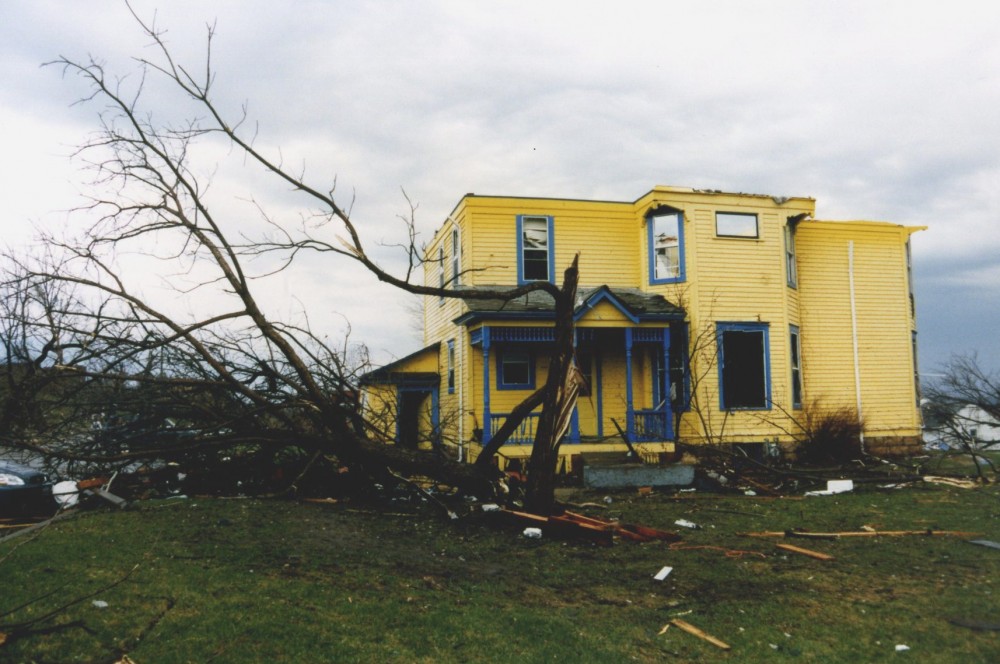
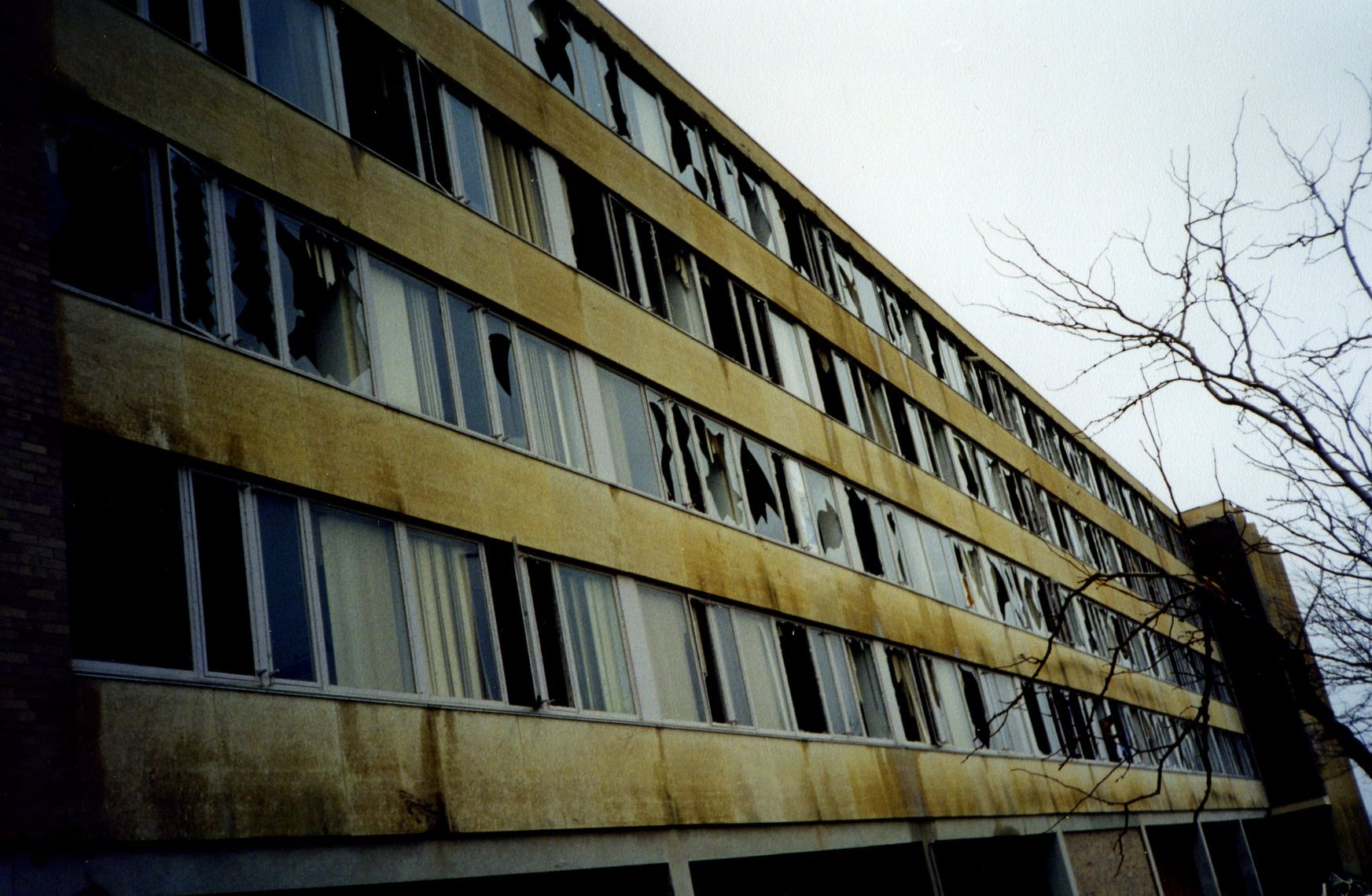
“This event unveiled the true Gustie spirit, and how everyone could really come together. It showed how much Gustavus really means to the outer community.”